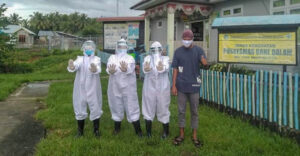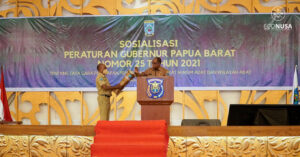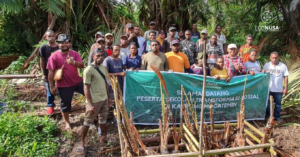
Current Biology Journal (edition of 9 March 2020) releases new findings on the plastic debris hazard to sea animals, particularly sea turtle. The finding shows that the aroma of prolonging plastic debris on the sea will spark food-like aroma to sea animals. The protracting plastic debris on the sea will serve as the home for microbe, moss and other vegetation. Sea animals such as sea turtle and mammalian whale are seeking food using their chemical sensing will perceive plastics as their food.
This is based on the statement made by Dr. Joseph Pfaller from Florida University released by BBC Indonesia on March 10, 2020. He said the smell coming from the floating plastic is a “fake aroma” to sea turtle. It is not simply visual sight, but they are captivated by the sea debris.
In the past five years, there have been reported fatalities of sea animals in Indonesian sea such as the death of whale in Wakatobi, sea turtle in Congot Beach, Kulon Progo. Upon meticulous examination, there were lot of plastics on their intestines. Globally speaking, there are many death tolls of sea animals due to plastic debris. For instance, 13 whales died in Germany, Britain, and Netherlands in 2016. All fatalities were due to digested plastics. Worse, one of the whales swollen 15-meter fish net.
The Government of Indonesia has a National Action Plan for Sea Debris Management 2018-2025 to cut down plastic waste by 70 percent in 2025. The plan should be optimized through national action implementation to cut down plastic waste. Individually speaking, this is done by reducing the single-use plastics. This can be collectively done through beach clean-up actions.
The Sea Facing Activity through beach clean-up has been done nationwide since 2018, 2019 and the latest in March 2020. EcoNusa Foundation and Pandu Laut Nusantara in collaboration with Yayasan Konservasi Laut and more than 50 communities organized beach clean-up activities in Tanjung Bayang Beach, Makassar. These actions were deemed collective endeavor to reduce sea debris and to campaign a healthy sea for individual and community sea activists.
Read: Cleaning up Makassar Sea from Debris
Reduction plastic waste on the sea will not only make sea cleaner but also make the sea ecosystem better for sea animals and peoples’ welfare. The scientists predicted that in 2050 the amount of sea debris and victimized fish will be increasing. However, that could be prevented.
For the reason, it requires collaboration with the government by supporting them to create and endorse policies on single-use plastic reduction. On the other side, the community could engage environmental campaign calling public to reduce the consumption of single-use plastics. Indonesia with its remarkable biodiversity has rich maritime and fisheries resources. This should be conserved in prevention of more sea animal fatalities due to plastic debris.
Read: Plastic Free Parade. Joint Voice Reduce Plastic Disposable
Editor: Leo Wahyudi







